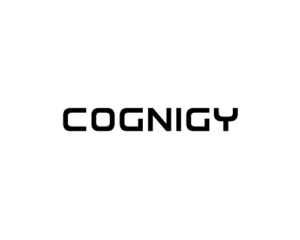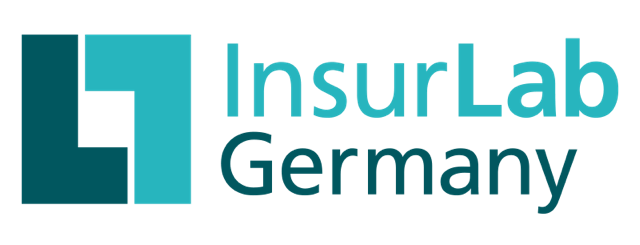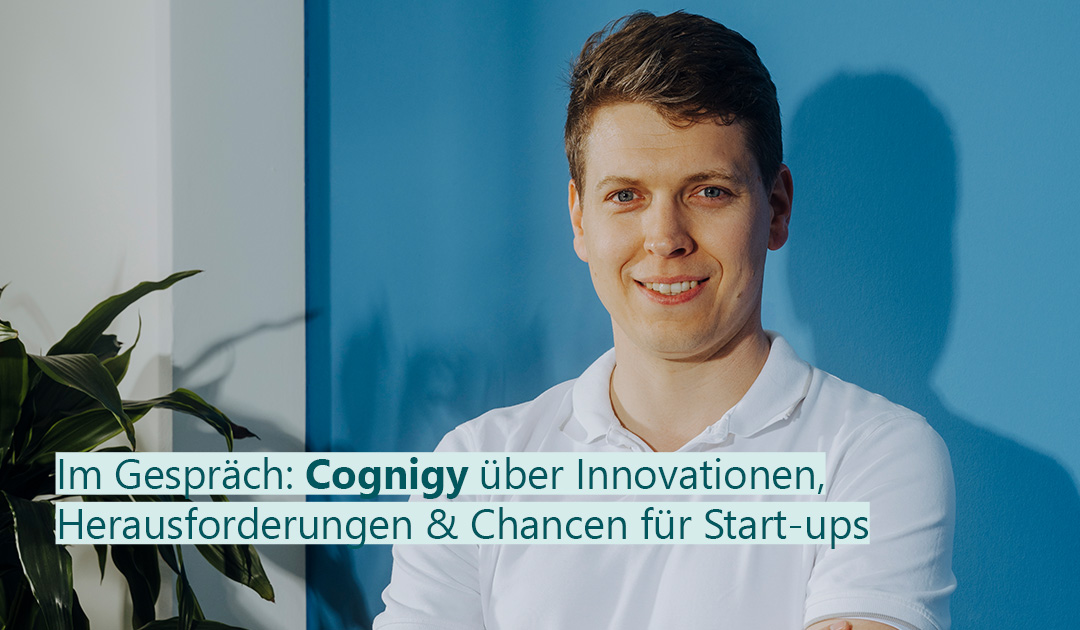"Cognigy collects 100 million," wrote the Handelsblatt recently. An impressive achievement by our start-up! And an excellent starting point for us, with Sascha Poggemann (Founder & COO of Cognigy) to talk about the impact of this on the insurance industry, the role of AI on customer experience and upcoming trends and challenges. But we also took the opportunity to elicit valuable learning and tips for start-ups from Sascha.
100 million in Series C - congratulations on this really impressive financing round! Can you tell us how you plan to use this investment to shape the future of contact center automation? What particular impact can we expect for the insurance industry?
Thank you very much! The new investment round is a major milestone for us and we are proud to be playing in the international premier league of AI companies. The new funds will flow into two areas in particular: Firstly, we will invest massively in software development and further expand our technology leadership around AI agents. Secondly, we will accelerate our global expansion. For both, we naturally need new employees with whom we can use the strong momentum that the funding gives us.
For the insurance industry, this means that we will continue to optimize our solutions and enable even better user experiences. With more predefined use cases and integration into third-party systems, we can further shorten the time to market for a range of use cases. Ultimately, both our new customers and existing customers in the insurance sector will benefit.
Your AI solutions are revolutionizing the way companies interact with their customers. Can you give some examples of how these technologies are already improving efficiency and the customer experience in the insurance industry?
In fact, we always pursue these two goals with our customers: Better experiences for end customers and optimized processes. For the current generation of AI agents, this is not a contradiction - the technology is well advanced and feedback from users shows how well it works in practice.
In general, Cognigy has a strong position in the insurance sector, particularly in the DACH region. Our customers include ERGO and ARAG, where AI agents help to automate standard processes in voice and chat channels, which significantly increases efficiency in customer service - and not just in German.
Another example is a leading international insurer that uses AI agents for customer authentication. This saves around 1.5 minutes of manual processing time per call, which leads to considerable cost savings for millions of calls per year, but also gives customers time back.
Our AI agents are also used to process claims. They authenticate the caller, automatically record all the necessary information and forward the case to the appropriate employee, which shortens processing times and improves customer satisfaction.
Agent Copilot, our tool for real-time support in the contact center, offers further potential: automatic answer suggestions, knowledge queries, call summaries - there are many starting points for AI support here and most companies are only at the beginning of the journey.
The path from the idea to the successful implementation of a product is certainly full of challenges. Can you tell us about a particular challenge or a decisive event that shaped you as a team? How did you overcome this situation?
 The launch of ChatGPT in November 2022 and the release of the underlying language models was undoubtedly a game changer. Our R&D team had already been working intensively on LLMs beforehand, but the leap in quality of this generation of models was dramatic and took many market participants by surprise. Incidentally, the impact on end users was just as massive - ChatGPT became the benchmark for humanlike experiences overnight, and quite rightly so.
The launch of ChatGPT in November 2022 and the release of the underlying language models was undoubtedly a game changer. Our R&D team had already been working intensively on LLMs beforehand, but the leap in quality of this generation of models was dramatic and took many market participants by surprise. Incidentally, the impact on end users was just as massive - ChatGPT became the benchmark for humanlike experiences overnight, and quite rightly so.
On the one hand, this opened up completely new technological possibilities for us: Functions that were previously almost impossible to implement were suddenly within reach. On the other hand, such an upheaval puts existing concepts and plans at risk.
How did we deal with this? We rallied the entire company behind this topic in an extremely short space of time and were fully committed to making LLMs usable for our customers in practice. We were convinced from the outset that a hybrid concept of Conversational AI and Generative AI was the key to success in the enterprise environment. We were the first major conversational AI player to deeply integrate generative AI into our platform and rolled it out to our customers just a few weeks after the ChatGPT launch. The fact that we were right to do so is reflected not only in the positive feedback from our customers, but also in the recognition from analysts at Gartner and Forrester.
What trends and technologies do you see for the coming years? How is Cognigy preparing for these challenges and opportunities?
 One thing is certain: the dynamics in the market and the speed of technological progress in the AI environment will continue to be enormous. For us, this means focusing on agility in all areas of the company, from R&D to sales. This is the only way we can maintain our lead in technology, but also in the go-to-market. Even with a company that has grown significantly, we are strong in pursuing a vision and at the same time reacting quickly to changes and customer requirements - this will continue to be a success factor in the future. We want to remain a speedboat and not become an oil tanker.
One thing is certain: the dynamics in the market and the speed of technological progress in the AI environment will continue to be enormous. For us, this means focusing on agility in all areas of the company, from R&D to sales. This is the only way we can maintain our lead in technology, but also in the go-to-market. Even with a company that has grown significantly, we are strong in pursuing a vision and at the same time reacting quickly to changes and customer requirements - this will continue to be a success factor in the future. We want to remain a speedboat and not become an oil tanker.
Apart from technology, we will of course be dealing with other topics: Our customers expect solutions and expertise relating to the EU AI Act, even more industry knowledge is needed for predefined solutions and the job profile for contact center employees will change fundamentally - to name just a few trends. With this funding, we are ideally equipped to actively shape these trends and continue to grow as a company.
What would you recommend to (prospective) founders who want to gain a foothold in the tech and insurance industry? How important are innovation hubs in this context and how do such communities affect scaling? And are there any specific learnings that were particularly valuable for you?
Founders should deal intensively with the specific needs and challenges of the insurance industry. The market is highly regulated and requires a high level of data protection and security. A successful solution must therefore not only be technologically advanced, but also compliance-compliant and enterprise-ready.
Innovation hubs and tech communities are hugely important. They provide access to resources, mentoring and networks that are crucial for scaling. In these hubs, you can learn from other start-ups, support each other and meet potential investors. This accelerates the development and market launch of new products.
Last but not least: Close cooperation with customers is the key to understanding requirements precisely and delivering tailor-made solutions. For us, it's a real "give and take": we benefit from our customers' corporate knowledge and design our solution based on practical requirements. And sometimes a feature request makes it into the product within hours, without any hurdles. In the long term, happy customers are not only the most important sales factor, but also by far the best supporters when it comes to acquiring new customers.
Dear Sascha, thank you very much for the interview - we wish you continued success!


